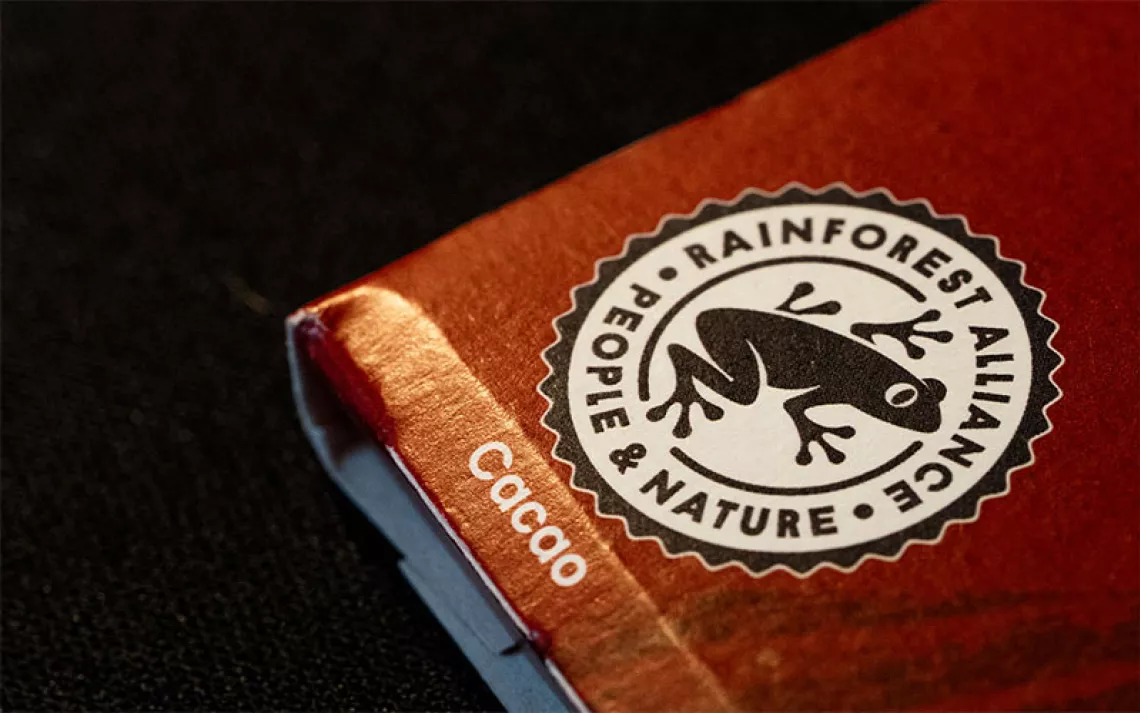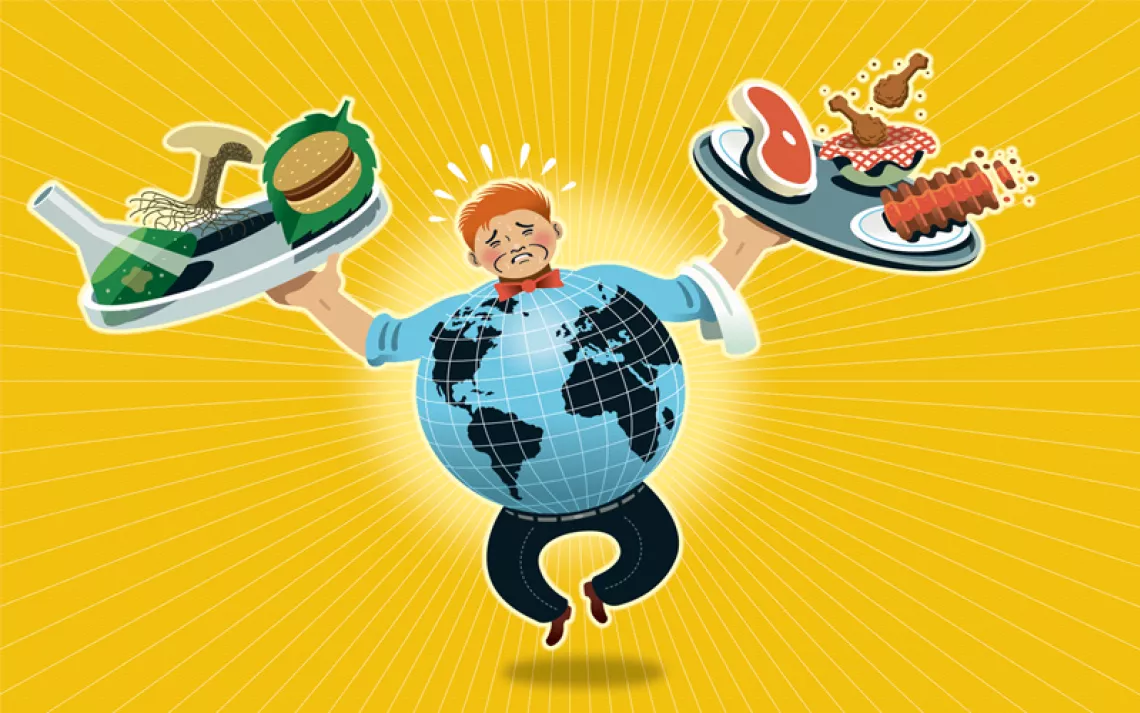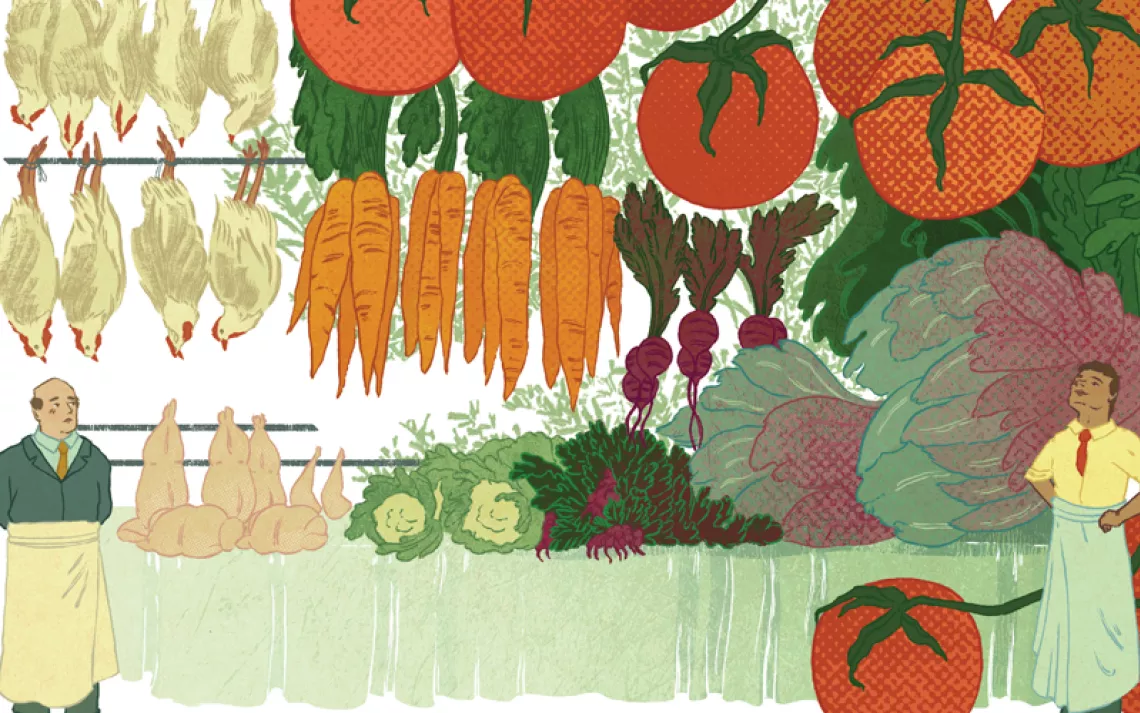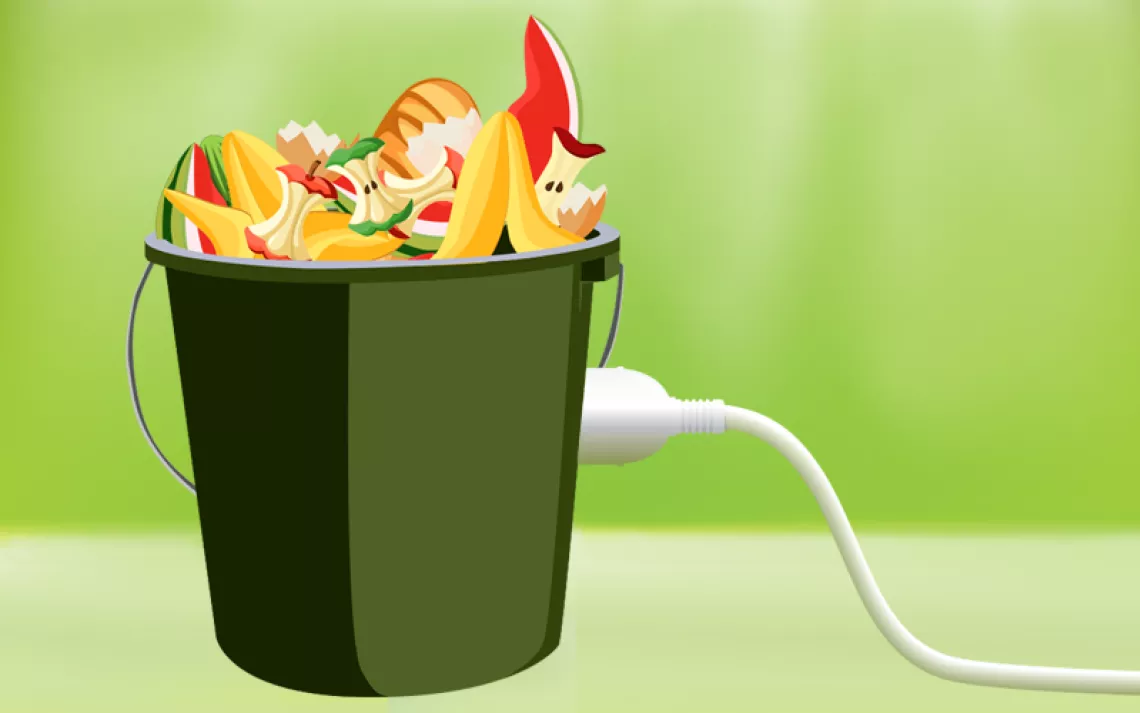5 Foods Made From Trash
At least 30 percent of food ends up in landfills each year in the United States. Thanks to these five noshes—all made from castoffs—the trash piles are a little smaller.
By Chelsea Leu
August 7, 2015
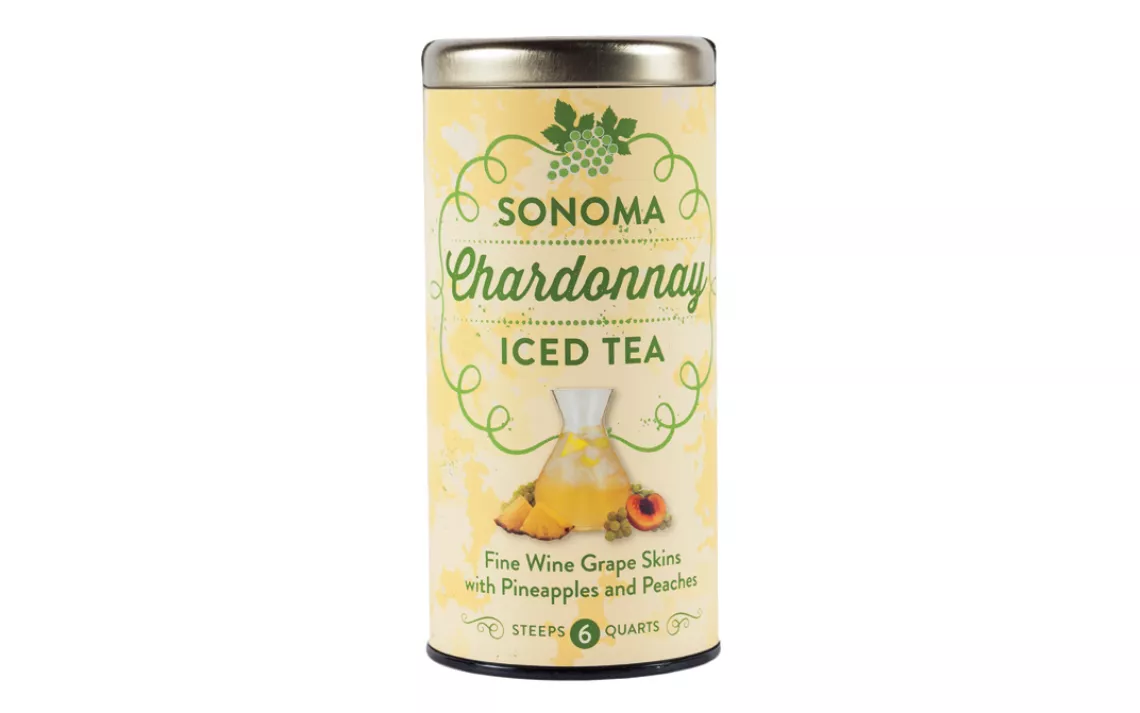
The REPUBLIC OF TEA's new line of Sonoma Teas is made from grape skins discarded by Northern California wineries. These refreshing drinks incorporate wine's nuanced flavors but not its intoxicating effect. The summery Sonoma Chardonnay Iced Tea has notes of peach and pineapple. Steep one pouch to make a quart of the family-friendly beverage, ideal for picnics or pairing with light salads. $8 for 24 pouches
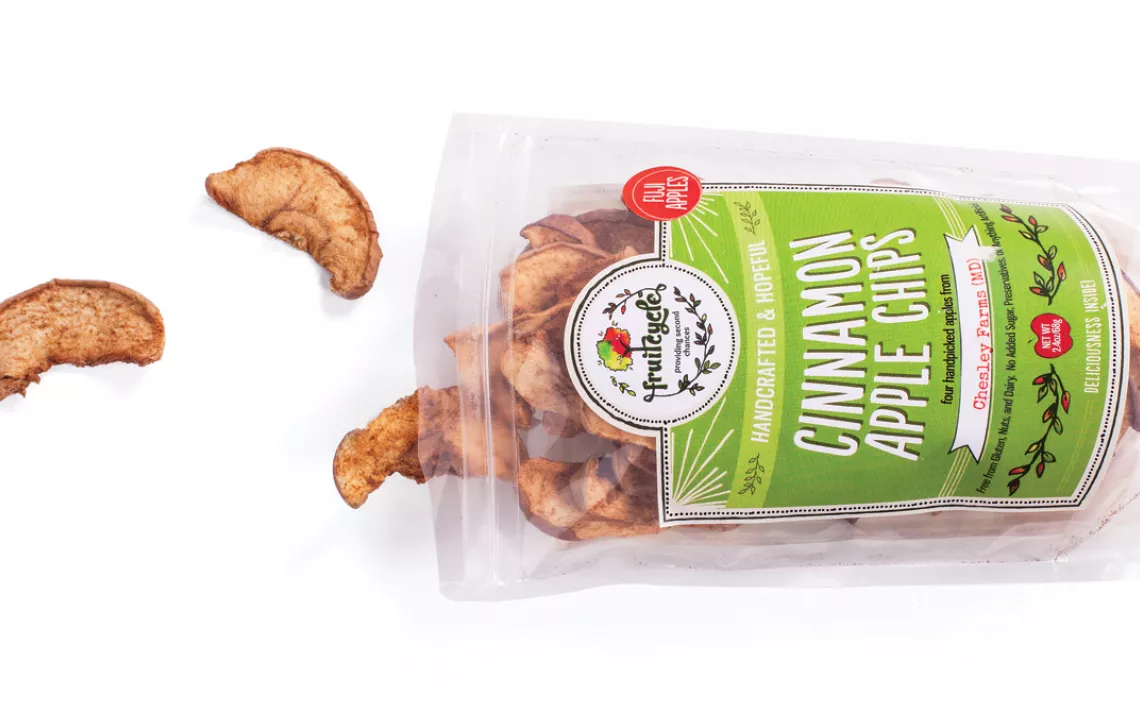
Elizabeth Bennett, the founder of Washington, D.C.-based FRUITCYCLE, believes in second chances. She collects wayward apples from under the trees of local orchards, dries them, and turns them into her Handcrafted and Hopeful Cinnamon Apple Chips, which are simply dusted with cinnamon. Bennett believes that humans, too, deserve another shot, so she partners with local nonprofits to hire homeless or formerly incarcerated women. $7 for a 2.4-ounce bag
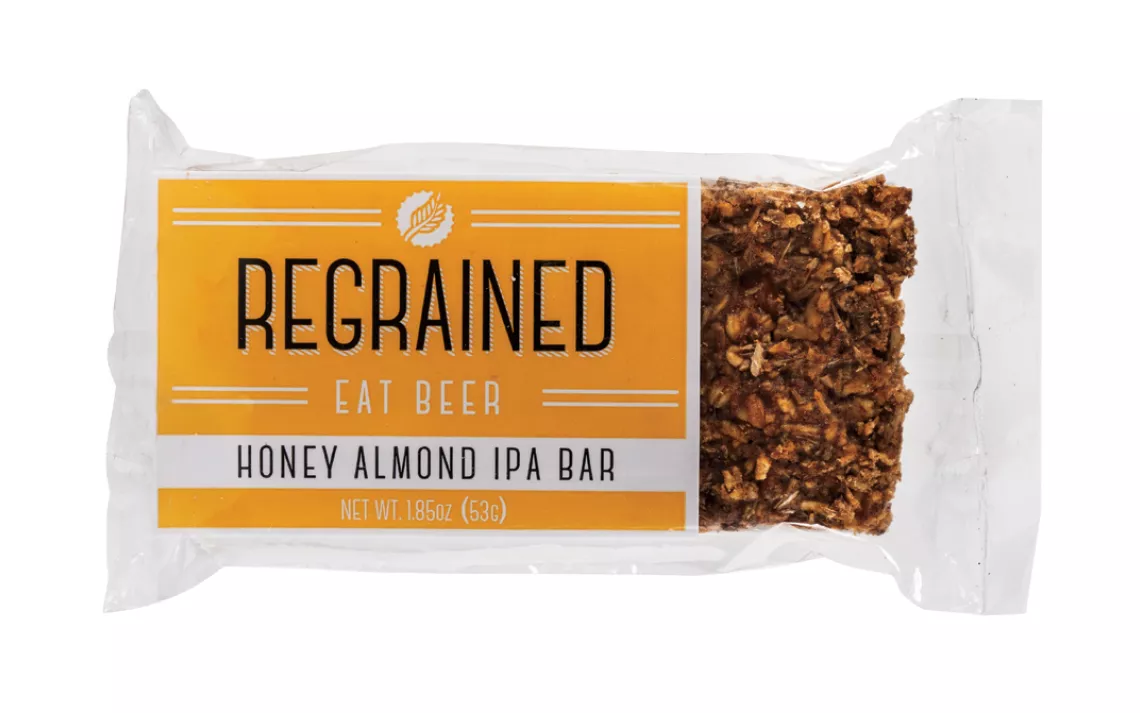
Dan Kurzrock was a UCLA student and an avid home brewer when he noticed an inefficiency in the process: Craft brewers need lots of grain to make small batches of beer, and leftovers often end up in the dumpster. Kurzrock co-founded REGRAINED to repurpose that spent grain into granola bars, working with breweries to create the Honey Almond IPA Bar, a sweet, nutty blend with oats and cinnamon. (And no, it doesn't taste like beer.) $25 for 12 bars
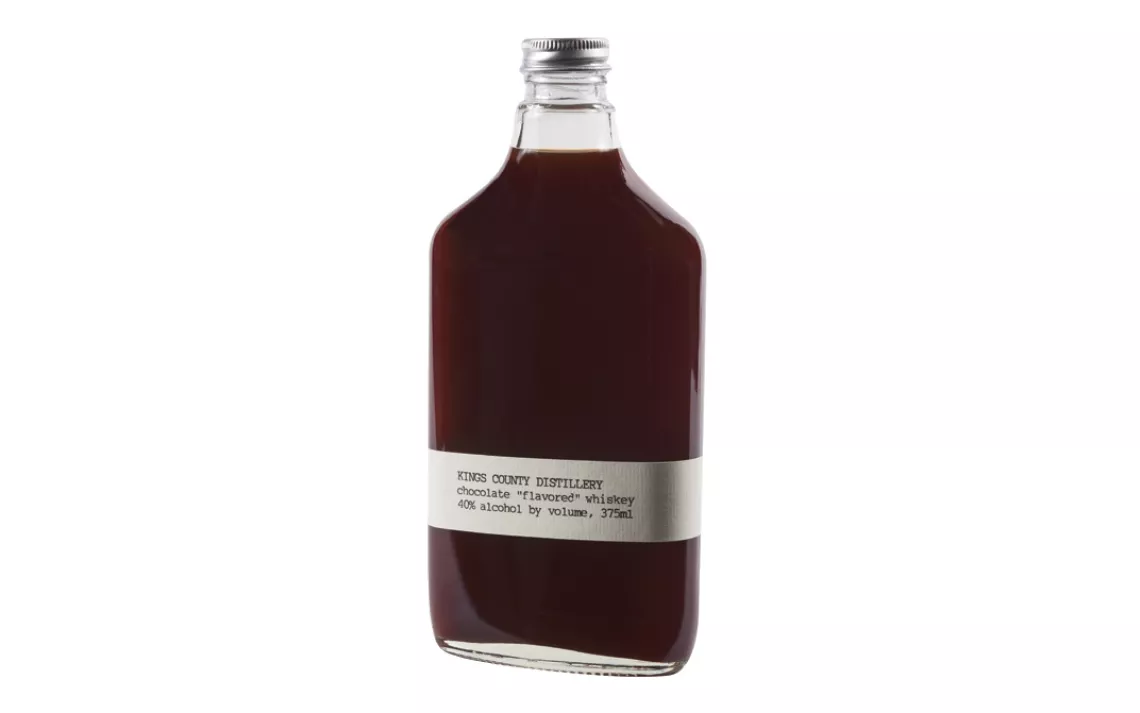
In 2011, whiskey maker Colin Spoelman was touring a chocolate factory near his KINGS COUNTY DISTILLERY in Brooklyn when he spotted a box of cocoa husks—a fragrant but inedible byproduct of chocolate making—headed for the compost heap. Spoelman suspected that the fibrous stuff still had potential. After some tinkering, he produced a husk-infused Chocolate Whiskey. Dark, bitter, rich, and very chocolaty, it's good on its own or as a substitute for bitters. $23 for a 200-milliliter bottle
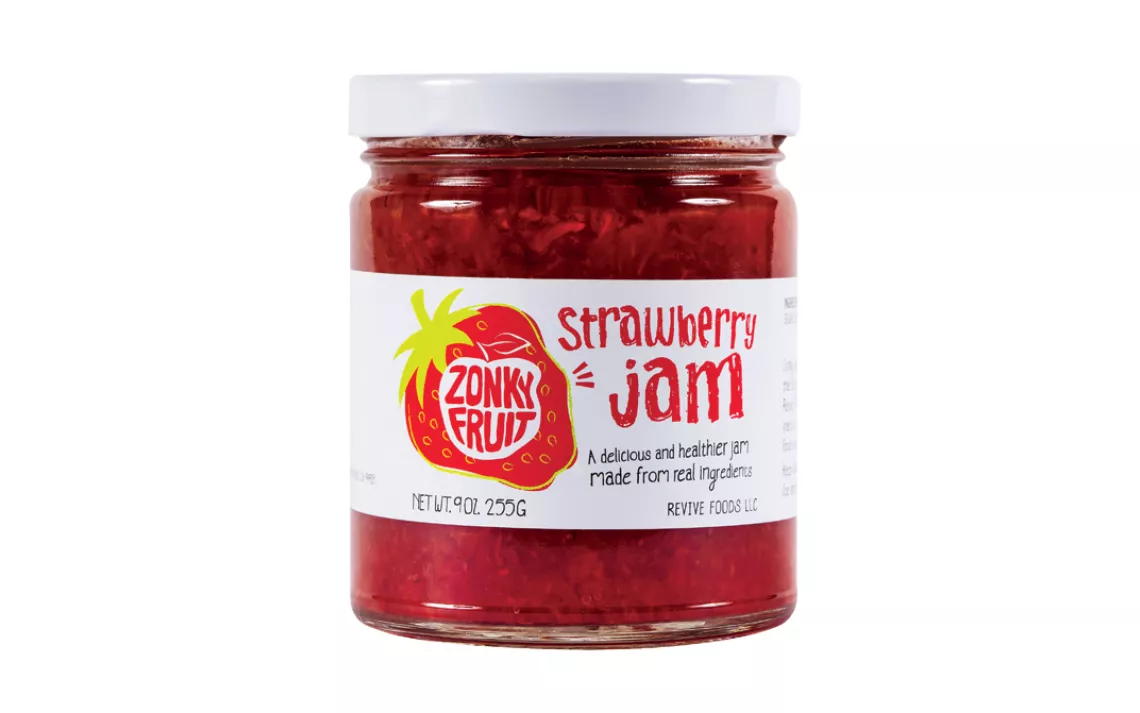
Zoe Wong, a co-founder of REVIVE FOODS, grew up in Hong Kong, which imports most of its produce. When she moved to California, she was delighted by the abundance of fruit but troubled by the mounds of leftovers, so she began preserving what she could glean from neighborhood trees. Wong's company now gets its raw materials from a market that happily donates excess produce. Revive's Strawberry Jam is bright and fruity, with a dash of balsamic vinegar. $8 for a 9-ounce jar
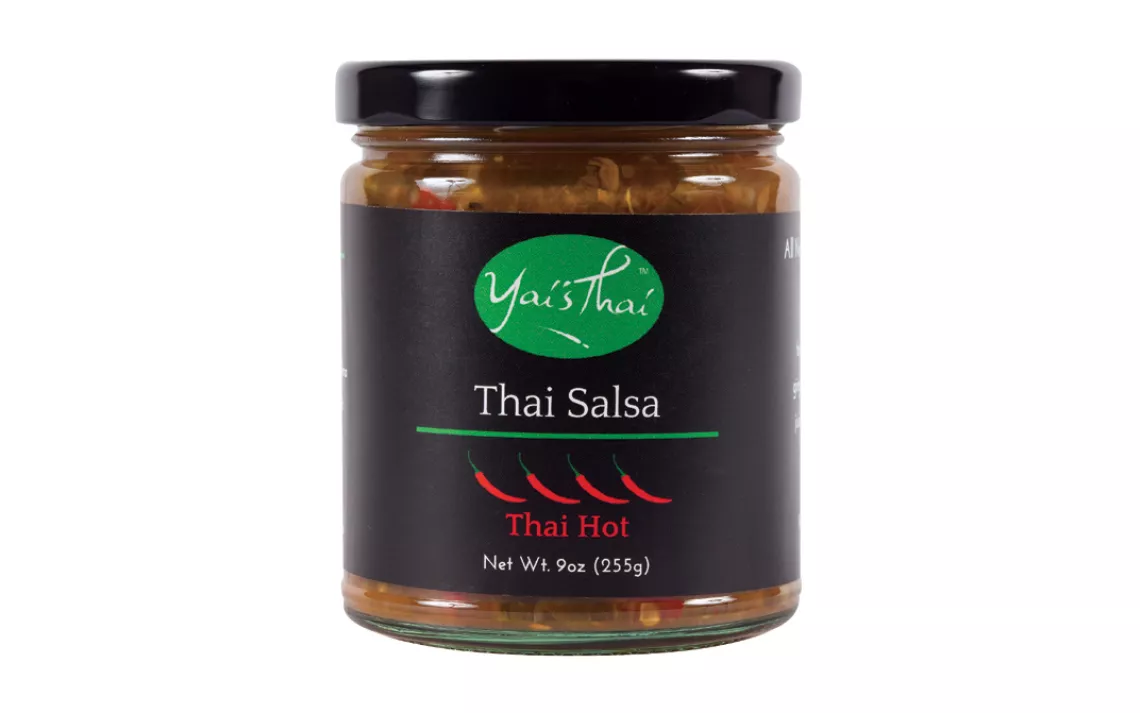
Leland Copenhagen and Sarah Hughes use an old recipe from Copenhagen’s grandmother to make YAI’S THAI SALSA. They tap local Colorado distributors that reject less-than-perfect vegetables. No two jars of salsa contain the same proportion of tomatoes, green onions, ginger, and chilies. But each flavor, from Medium to Thai Hot, packs a kick that tastes great on eggs. The duo also makes tomato chips from the leftover skins. $18 for three 16-ounce jars
Photographs by Lori Eanes
Chelsea Leu is a former editorial intern at Sierra.
More articles by this author- Keywords:
- food and drink
- buyers' guide
 The Magazine of The Sierra Club
The Magazine of The Sierra Club
